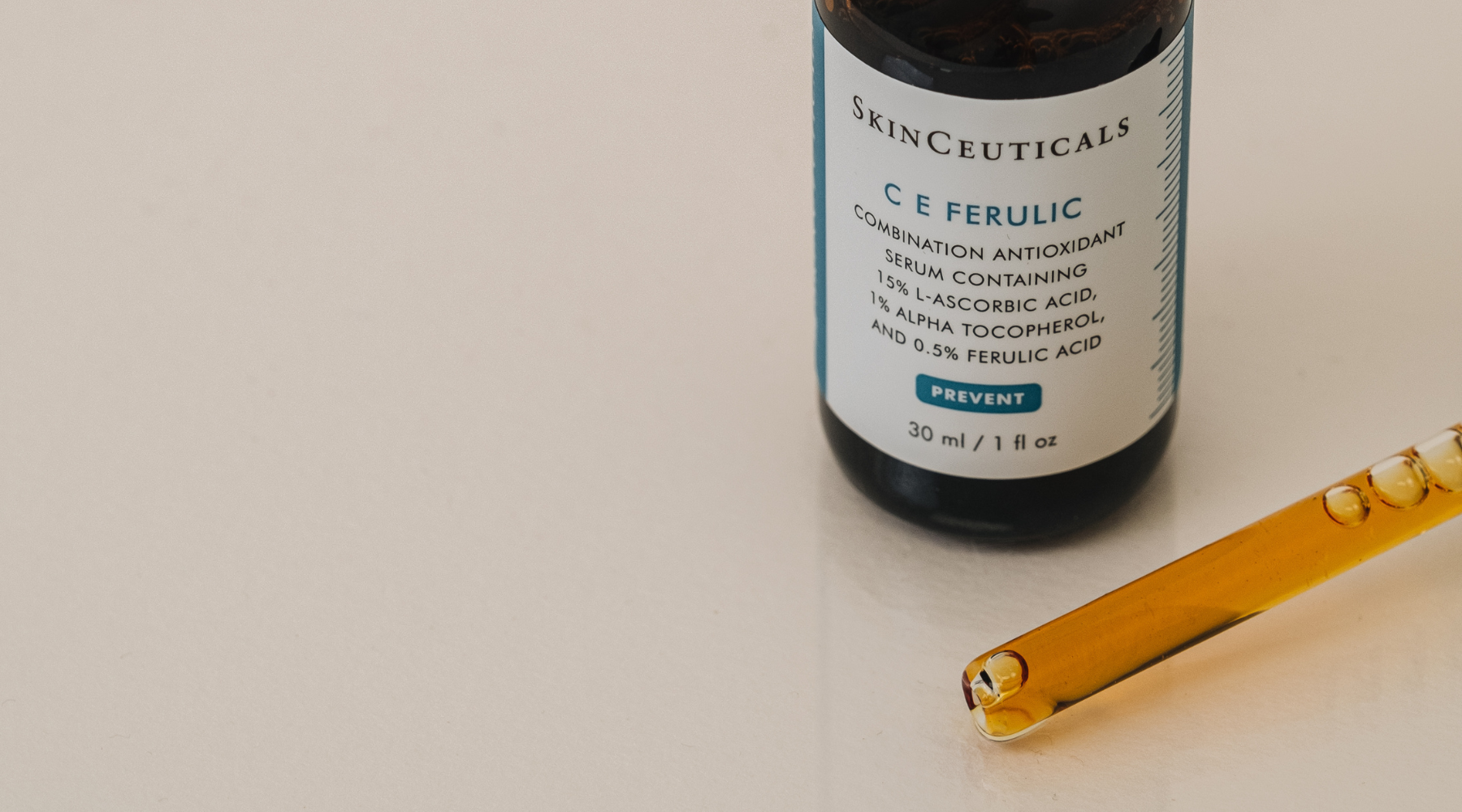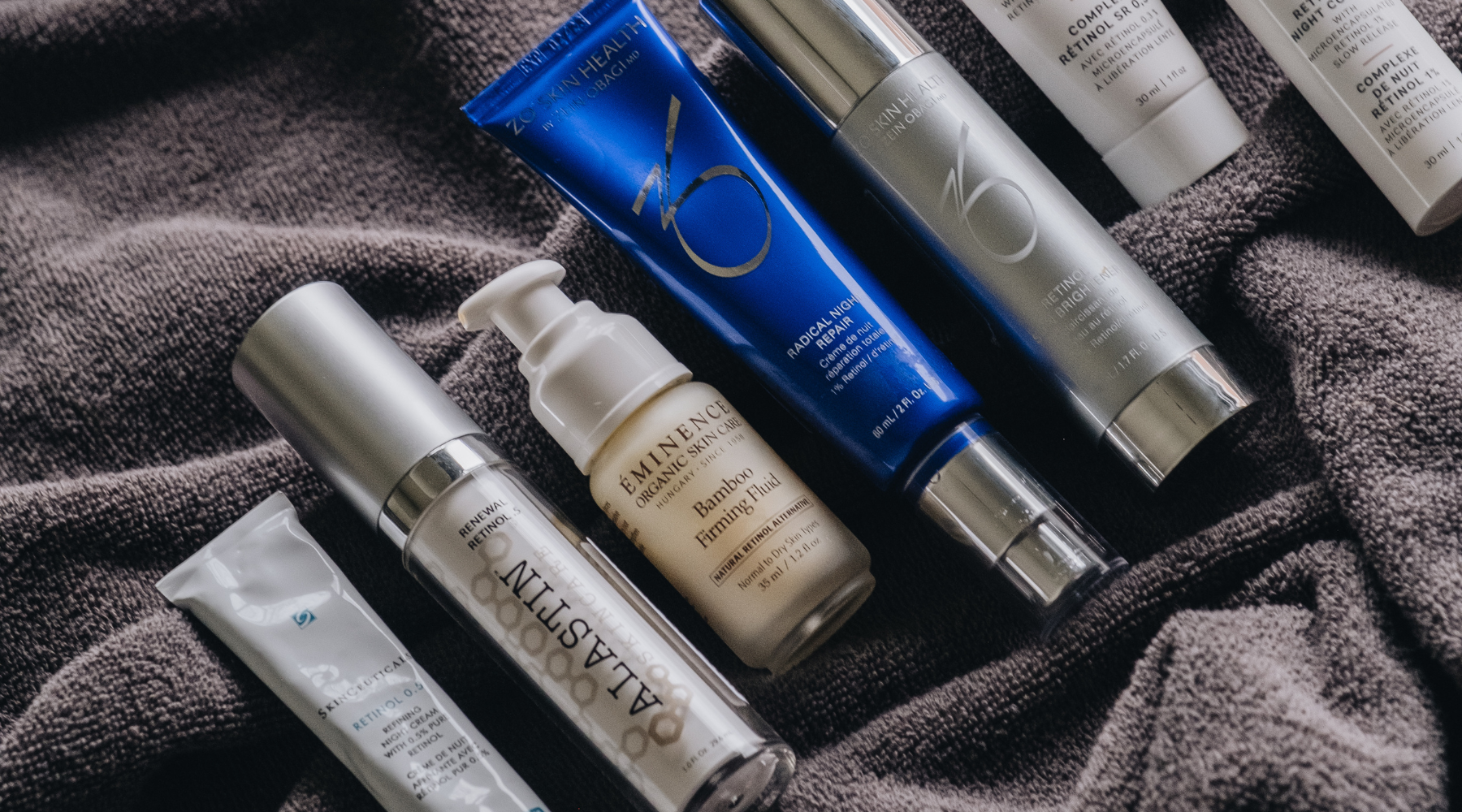
Free Radicals & Antioxidants with Dr. Jeanne Retief
This week, we had a lovely chat on the SKNKRE podcast with Jeanne Retief–CEO and founder of FIGGI Beauty–on the detrimental effects of free radicals on our skin. Read on below to learn more about what Jeanne had to teach us about the counteractive power of antioxidant protection and why it's important to take free radical damage so seriously–no matter your age or skin type!
WHAT ARE FREE RADICALS?
To put it simply, free radicals are incomplete molecules that circulate in our environment and “attack” healthy skin cells. Therefore, they attach to the skin’s healthy stress and try to make themselves whole. This effect is called oxidative stress, and it’s what causes the skin to lose elasticity and decrease its collagen production–leading to sagging and loss of firmness.
The body is naturally imbibed with the power to produce collagen and elastin cells, keeping the skin looking youthful. This little army of cells defends our skin, but unstable molecules–like pollutants–in our environment will try to penetratively “attack” and destroy our healthy cells.
Examples of these pollutants–AKA, free radicals–include UVA/UVB light, the blue light radiation from your devices, pesticides found in foods and drinks, air pollution, and much more.
HOW DO FREE RADICALS AFFECT THE SKIN?
One of the biggest questions is often ‘why do we care?’, says Jeanne. Well, free radicals can break down collagen and elastin, two essential proteins that maintain skin's elasticity. When these proteins degrade, it results in the formation of wrinkles and fine lines. Over time, the cumulative effects of free radicals can accelerate the overall aging process, resulting in premature aging.
Loss of elasticity, dryness, roughness, and flakiness are also the result of free radical damage as they have the ability to disrupt the skin's natural lipid barrier. Hence, free radicals can exacerbate inflammatory skin conditions like acne, rosacea, and eczema.
Free radicals can also trigger an overproduction of melanin, leading to the development of dark spots or uneven pigmentation on the skin, such as age spots and sunspots.
CAN WE COUNTERACT FREE RADICAL DAMAGE?
It is possible to mitigate the signs of skin damage and aging caused by free radicals through the power of antioxidants and the professional products that contain them.
Antioxidants counteract the harmful effects of free radicals by neutralizing them and preventing the damage they can cause. Topical antioxidants, such as vitamin C and vitamin E, help to neutralize free radicals and protect the skin from oxidative stress.
“I also really love ferulic acid”, says Jeanne. “Which is why the vitamin C and ferulic combination in the Skinceuticals CE Ferulic is really amazing”. This powerhouse duo will reduce inflammation; protect collagen and elastin; inhibit the overproduction of melanin; and safeguard cellular structures like DNA, proteins, and lipids from oxidative damage.
Sensitive skins can look for other forms of Vitamin C, such as rooibos extract, which is both antioxidant, anti-microbial, and anti-inflammatory.
Last but definitely not least, using a professional sunscreen that protects from both UVA/UVB rays and blue light can help reduce the skin's exposure to radiation, a significant source of free radicals.
HIGHER EDUCATION SKINCARE CRAM SESSION BLUE LIGHT BLOCKING MOISTURIZER
COLORESCIENCE SUNFORGETTABLE® TOTAL PROTECTION™ FACE SHIELD FLEX SPF 50
And of course, you should also be consuming antioxidants regularly. “You can ingest your antioxidants through citrus fruits, leafy greens, broccoli, and all types of berries––there are many ways”, explains Jeanne.
You can check out the full episode with Jeanne on the SKNKRE podcast–wherever you get your podcasts.
Until next time, protect the skin you are in!
The BSE Team













Leave a comment
This site is protected by hCaptcha and the hCaptcha Privacy Policy and Terms of Service apply.